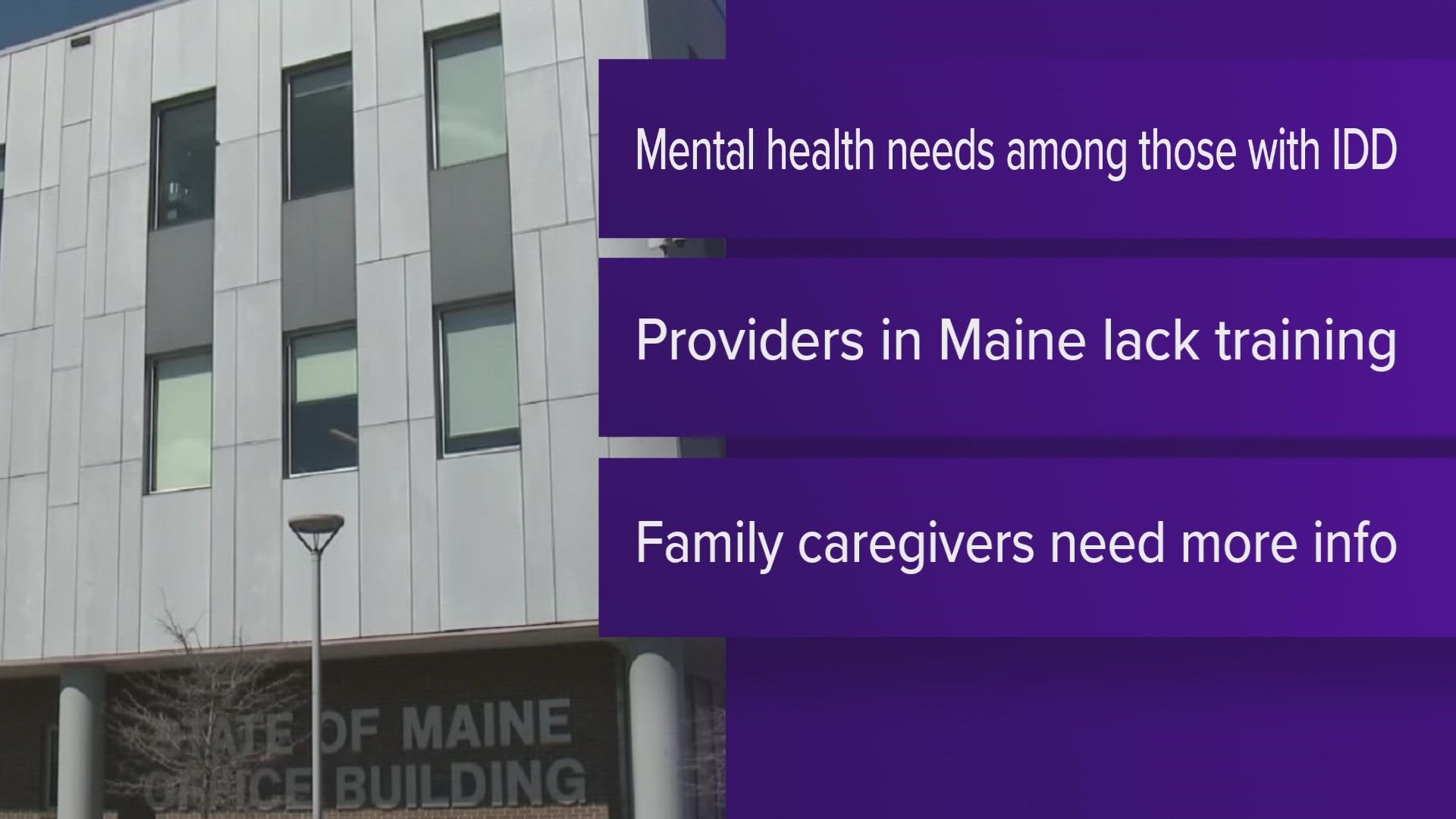AUGUSTA, Maine — The State of Maine is looking to enhance and improve the mental health and crisis services it provides for a population that is often overlooked: those with intellectual and developmental disabilities, or IDD.
On Monday, December 5, the Maine Office of Aging and Disability Services, the Maine Department of Health and Human Services, and the National Center for START Services at the University of New Hampshire's Institute on Disability met via Zoom. DHHS had contracted with NCSS after some issues came to light during the pandemic to conduct a system evaluation of mental health needs for those with IDD.
Joan Beasley with NCSS presented findings from the evaluation. She said the main questions the evaluation considered were how effective the current community system of care in Maine is in addressing the needs of people with IDD and mental health issues and how the system can be improved.
Beasley said 254 people responded to an online survey for this evaluation. There were also 11 focus groups conducted virtually with family members of and people with IDD, crisis providers, IDD providers, OADS staff, and local law enforcement. Additionally, the evaluation included 28 family interviews.
Findings of the evaluation indicated many providers lack the proper training and expertise to support people with IDD who have mental health issues. She said family caregivers also need more information and coaching to better support their loved ones. Findings also showed access to work and other community options in Maine is lacking for this population.
In terms of recommendations, Beasley said she encourages an expansion of treatment options under the mental health system of care. Recommendations also pointed to more data collection, analysis, and reporting to make sure improvement efforts are successful. Additionally, Beasley said it's important to identify training and professional development needs.
"What I have said and will say again is training cannot benefit people unless there's an infrastructure to support what people learn. In other words, if I learn something new but there's no way I can practice it or use it, it will fall short in having the impact that we're looking for," Beasley said.
Betsy Hopkins, associate director of Developmental Disability & Brain Injury Services at OADS, said the OADS crisis team has 60 people currently after adding eight community response workers. She said support is available statewide, both in-person and via telephone. There are also four crisis homes statewide.
Hopkins said OADS plans to hold more training for all crisis team staff members and make sure the services OADS offers are transparent. She said OADS is also planning to extend its partnership with NCSS to take on the START model, which Hopkins developed in 1988 "to improve capacity for effective services and supports for children and adults with intellectual/developmental disabilities and mental health needs."
Hopkins said currently, OADS is conducting a complex behavioral care team pilot in southern Maine to try to provide more wrap-around clinical support to IDD patients with mental health needs.

